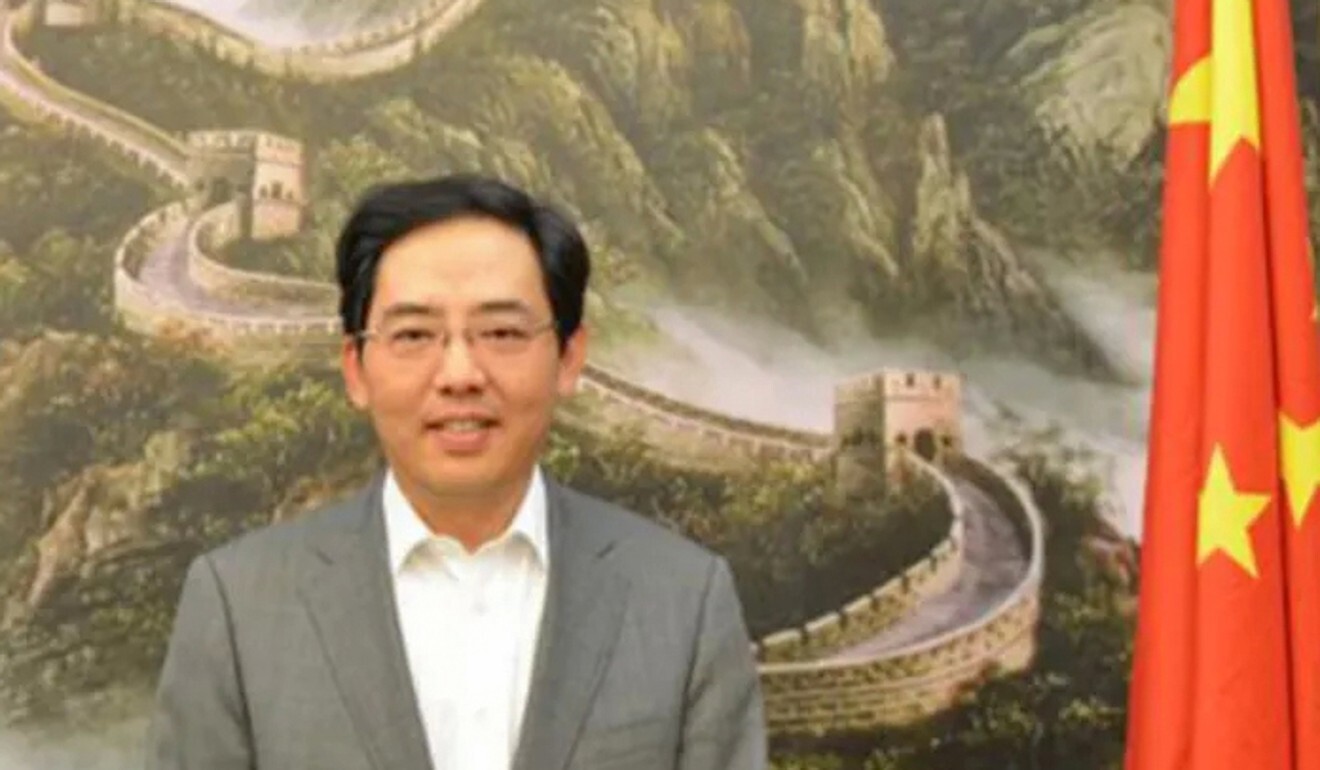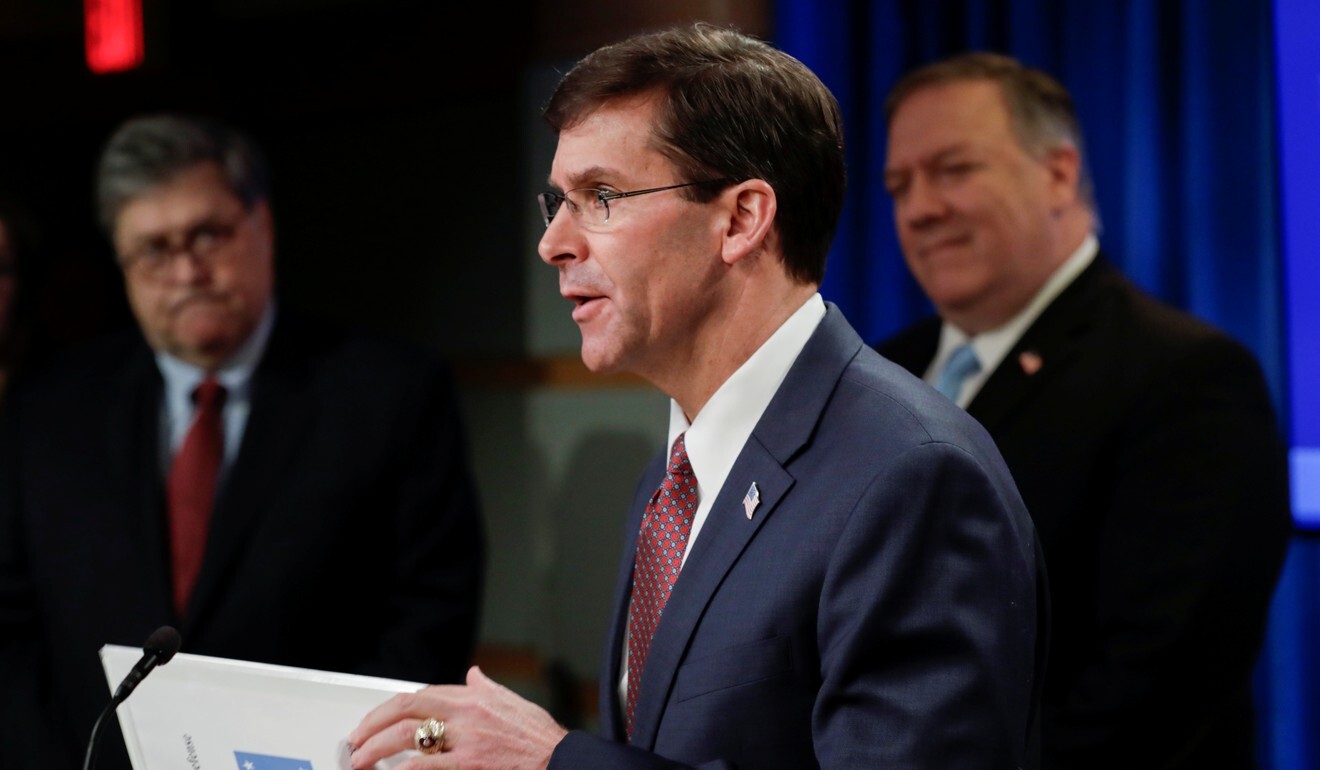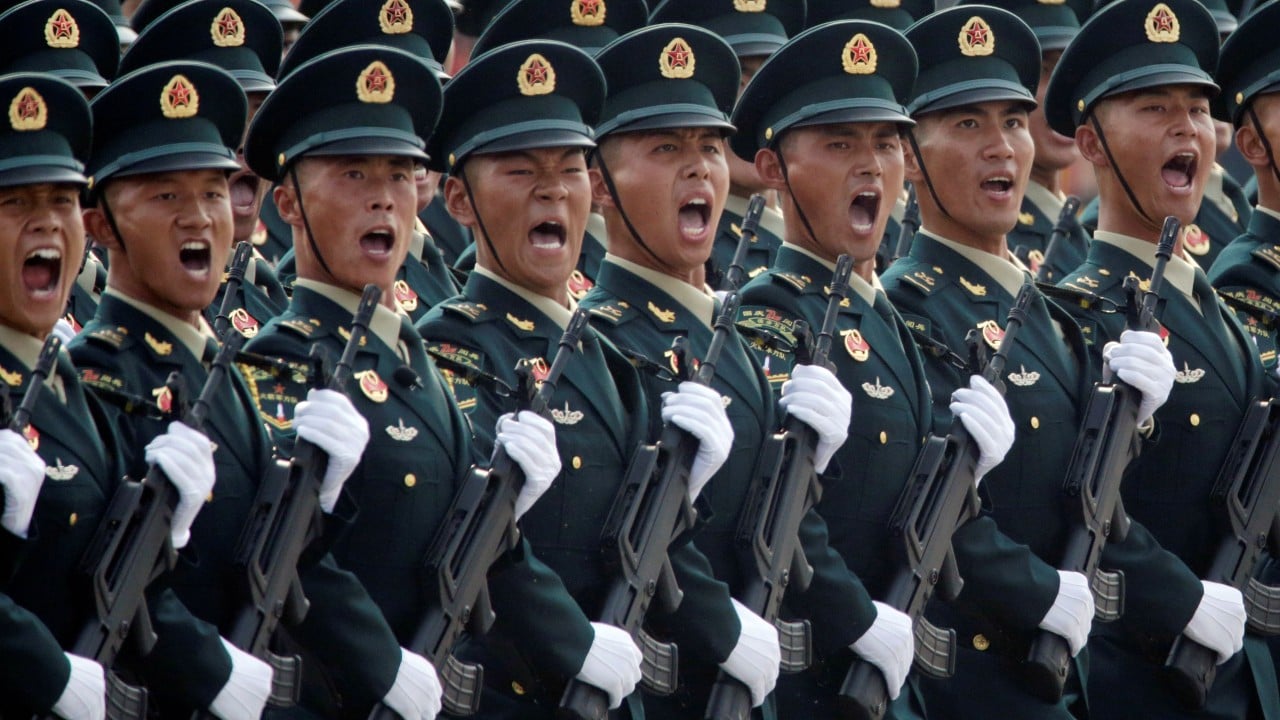
Chinese, US officials cross swords over activities in Southeast Asia
- China’s ambassador to Singapore Hong Xiaoyong accuses American defence chief Mark Esper of ‘fuelling tension’
- Esper had called for closer security relationships in the region ‘amid challenges posed by Covid-19 and the Communist Party’

Chinese and US officials have traded accusations over the two countries’ activities in Southeast Asia, as their strategic rivalry in the region intensifies.
Beijing’s ambassador to Singapore Hong Xiaoyong delivered the latest salvo on Monday, accusing US Secretary of Defence Mark Esper of “fuelling tension by labelling China a threat and calling for joint deterrence”.
He made the remark in The Straits Times in response to an opinion piece by Esper in the same Singapore newspaper a week earlier. Esper had called for closer security relationships with regional allies in Southeast Asia “amid challenges posed by Covid-19 and the Chinese Communist Party”.
According to Hong: “This was another attempt to sell the Indo-Pacific strategy of the United States after his predecessor’s [bid] at the Shangri-La Dialogue last year.”

He was referring to an annual regional security summit in Singapore, which was cancelled this year because of the Covid-19 pandemic.
Hong said Esper’s piece was “like flexing … muscles to show off”, accusing the US defence secretary of trying to “cause friction between major powers and add to the tension in the region”.
It was the latest round in a heated blame game between Beijing and Washington, as the two countries face off on multiple fronts – from trade and technology, to ideology and the origins of the coronavirus – raising fears of a new Cold War.
It also comes as leaders of the 10-member Association of Southeast Asian Nations, or Asean, are set to meet for their annual summit on Friday via video link, with South China Sea disputes and the Covid-19 pandemic high on the agenda.
In his opinion piece last week, Esper said the US would invest more to modernise its forces in the region and strengthen deterrence as part of “efforts prepare our military for future conflicts that we hope we won’t need to fight, but must be prepared to win”.

He called for stronger security ties with countries in the Indo-Pacific – including Japan, South Korea, New Zealand, Thailand, the Philippines, Australia and India – and accused Beijing of carrying out “malign activities”.
“The Chinese Communist Party’s destabilising behaviour in the East and South China seas, through the navy, coastguard and maritime militia, includes attempting to undermine Japan’s administration of the Senkaku Islands; harassing Malaysian and Vietnamese oil and gas development; sending escorted fishing fleets into Southeast Asian countries’ claimed exclusive economic zones; and militarising occupied features in direct contravention of China’s commitments under international law,” the US defence chief wrote.
“Simply put, threatening and intimidating its neighbours undermines the CCP’s calls for stability and cooperation in the South China Sea,” he said.
“We stand with all of our partners and allies in the Indo-Pacific, big and small – and together, we remain vigilant to resist the CCP’s efforts to chip away at the sovereignty of other nations and undermine international rules and norms.”

04:12
Are Xi Jinping’s China and Donald Trump’s US destined for armed conflict?
In response, Chinese ambassador Hong wrote in his opinion piece that the Indo-Pacific strategy – widely seen as a tool for Washington to counter Beijing’s growing influence in the region – was “reviving the Cold War mentality in an effort to impose divisions along the lines of ideology”.
“In recent years, the US has also employed many strategies in various guises in other regions of the world, but these have only resulted in instability, economic decline, and destroyed lives,” he wrote.
Hong said Esper had raised the South China Sea issue to “sow discord” between China and the region. “The South China Sea issue is left over from history. The claimant countries have always managed their differences generally well for decades, but turbulence occurred when interference came from outside,” he wrote.
Hailing China’s close trade ties with the Asean bloc – now its largest trading partner – Hong also sought to defuse tensions with the US.
“China looks forward to propelling a China-US relationship based on coordination, cooperation and stability. China does not intend to change the US; neither does it seek to replace the US. The US cannot change China at its own wish, nor can it block China’s growth,” he wrote.
While Beijing and Washington have ramped up engagement in Southeast Asia as they vie for influence, a regional poll in January shed light on how the two powers are seen there.
Singapore’s ISEAS-Yusof Ishak Institute surveyed 1,308 people in Asean countries, with 47 per cent saying they had little to no confidence in Washington, while more than 50 per cent saw Beijing as the most influential and strategic power in the region.
But nearly half believed Asean should seek out “third parties” – like Japan or the European Union – in the face of growing competition between China and the US.